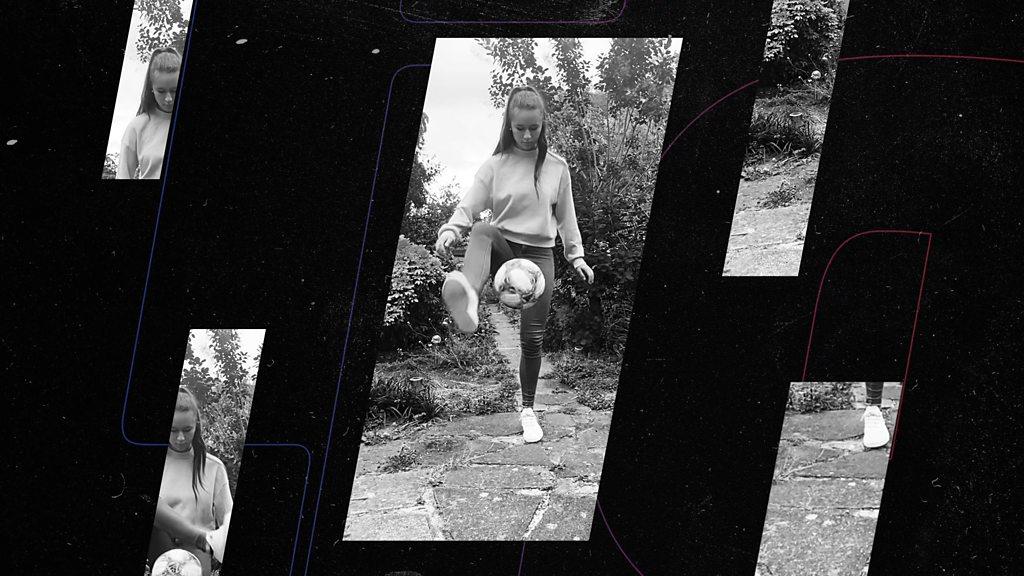What is facial recognition and why are people talking about it?
- Published
WATCH: What is facial recognition?
Every time you open your phone using your face, you're using a piece of technology called facial recognition.
Facial recognition allows your face to be identified by your phone so you can unlock it and access all of its features.
You're also using facial recognition when you're using filters on social media.
It's not just used by phone companies, the technology is also used in more serious ways - by the police in an attempt to identify criminals, for example.
However, this move has been controversial because the technology hasn't been completely successful in identifying people from non-white backgrounds.
Here is everything you need to know about facial recognition.
What is facial recognition and how does it work?
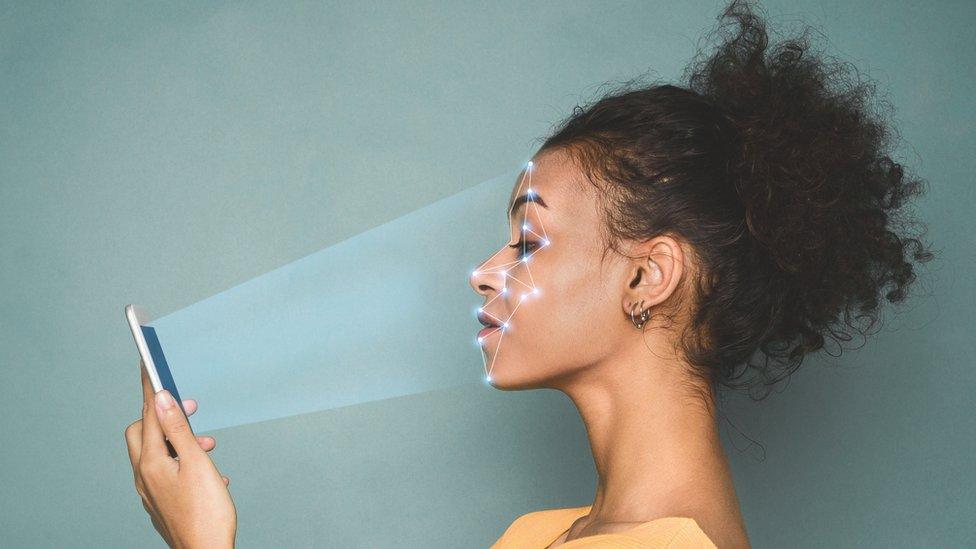
Facial recognition is technology that makes it possible for a computer to recognise someone's face.
According to artificial intelligence expert Krittika D'Silva it involves "teaching a computer to try and recognise parts of the face, by using different characteristics like the eyes and the nose".
The technology is used for security purposes by some shops, as a way of putting off people who want to steal things.
Krittika D'Silva says we could soon see the technology a lot more in everyday life, including in classrooms, in airports and even as a way of identifying missing children.
"Places where we could expect to see facial recognition in the future are for automatic roll-call in a classroom to see who is and isn't there, in entrances for businesses and in departure gates in airports to see who is coming through," she said.
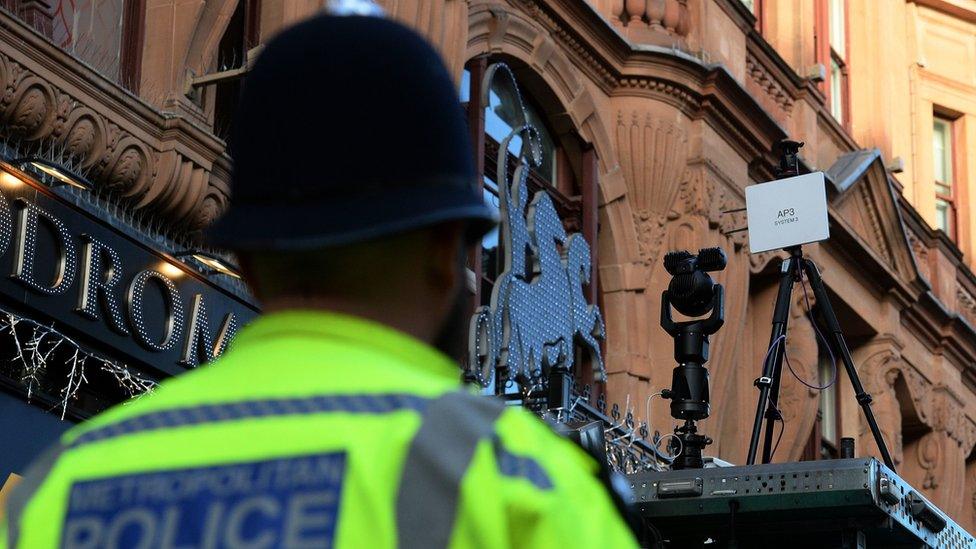
This is what the facial recognition cameras used by the Metropolitan Police look like
Facial recognition has also been used by police forces across the world in an attempt to catch criminals on high streets.
The Metropolitan Police in London has a database with the faces of criminals its officers want to catch.
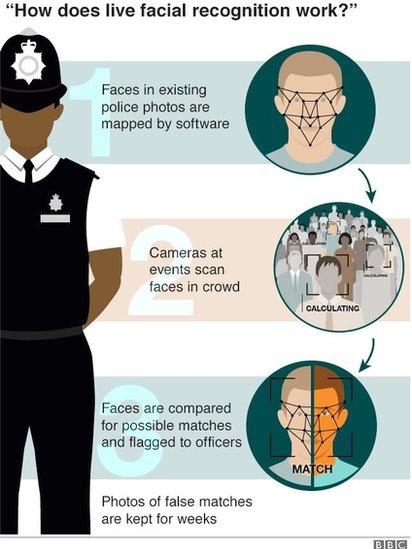
Since January 2020, the Met has been using facial recognition cameras in an attempt to spot these faces in and around London.
However, campaign groups have criticised this move, arguing that it's biased against people from ethnic minority communities.
Why is it controversial?
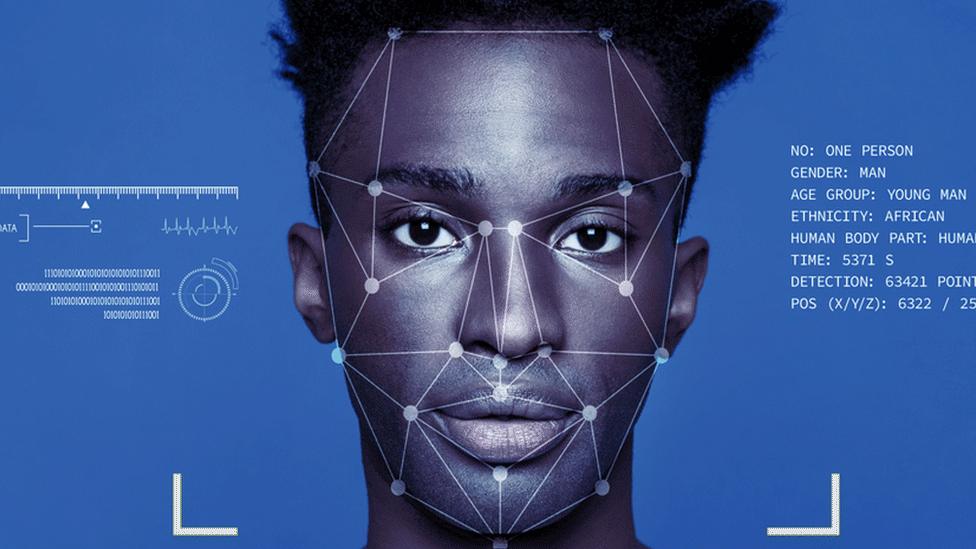
Facial recognition tools are increasingly being used by police forces
There have been lots of studies into the effectiveness of the facial recognition technology used by police forces.
In 2019, a group of experts and scientists - including a former Amazon engineer called Anima Anandkumar - wrote to Amazon asking the company to stop selling its facial recognition technology to police forces in the USA.
In the letter, Anandkumar and the other experts argued that the facial recognition wasn't ready to be used by police because of questions over its effectiveness on people who aren't white.
"The data that is used to train this technology is heavily biased," Anandkumar told Newsround.
Bias means that someone prefers an idea and possibly does not give equal chance to a different idea. So, in the case of facial recognition, the software leans towards people who are white because it knows more about them.
WATCH: What happens when facial recognition goes wrong?
In 2019, a US government study into facial recognition companies supported this view.
In the study, the facial recognition software of 99 companies was tested.
The technologies struggled to accurately identify African-American and Asian faces compared to white faces.
"That's because the earliest faces used were celebrities and most of them were white. Even other aspects in terms of age, in terms of women wearing make-up, all of these create biases," Anandkumar said.
For Krittika D'Silva, the accuracy of any facial recognition technology is completely dependent on what information it is fed.
"When we've been teaching it about people's faces there hasn't been as much focus on people of colour so the data contains more images of white men and women," she said.
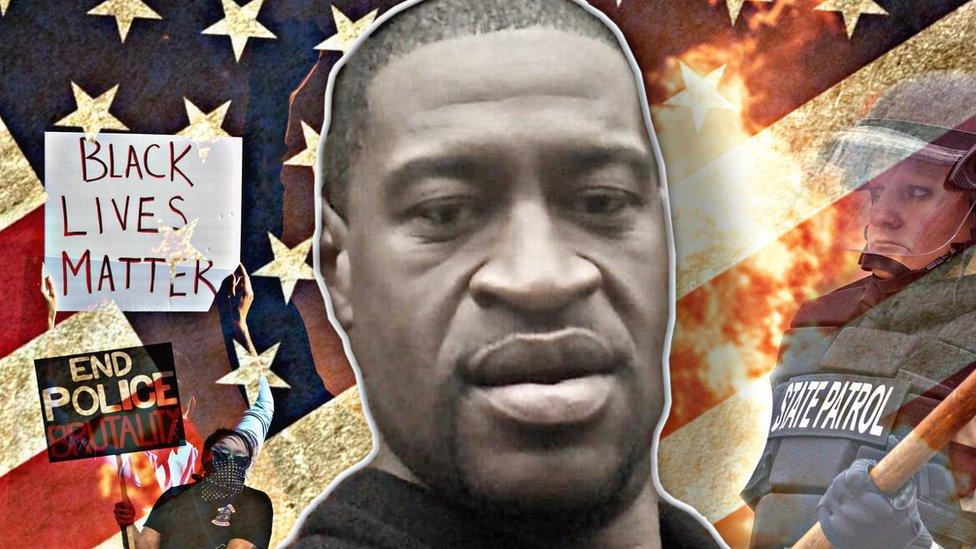
The death of George Floyd (pictured) brought facial recognition technology back into the media spotlight
This issue of racial bias was brought back into the media spotlight again in 2020 following the death of unarmed black man George Floyd in Minneapolis, USA.
After public backlash over the potential use of the technology to identify people in Black Lives Matter protests, Amazon put a ban on police using its facial recognition technology for a year.
Tech companies IBM and Microsoft also said that they would stop selling facial recognition technology to police.
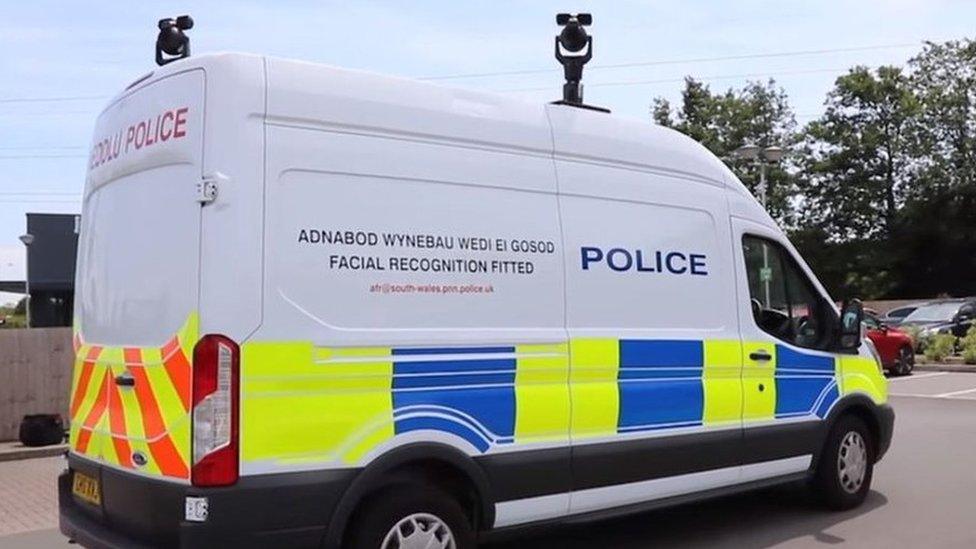
South Wales Police is the biggest user of facial recognition technology in the UK
South Wales Police (SWP) was the first force in the United Kingdom to make an arrest using facial recognition technology in 2017, ahead of the Champions League final in Cardiff.
The force is currently facing a legal challenge over its use of the technology.
A spokesperson from SWP told Newsround that there had never been a wrongful arrest as a result of the use of facial recognition and that the ultimate decision on whether to arrest someone has always been made by a human police officer.
The Metropolitan Police has profiled 13,200 people using facial recognition since January 2020.
Of those people, there have been seven mistaken identities, and one successful arrest and prosecution, it said.
A Met Police spokesperson told Newsround that the technology has not been used at any Black Lives Matters protests and that any arrests are ultimately made after being checked by a human police officer.
- Published17 June 2020
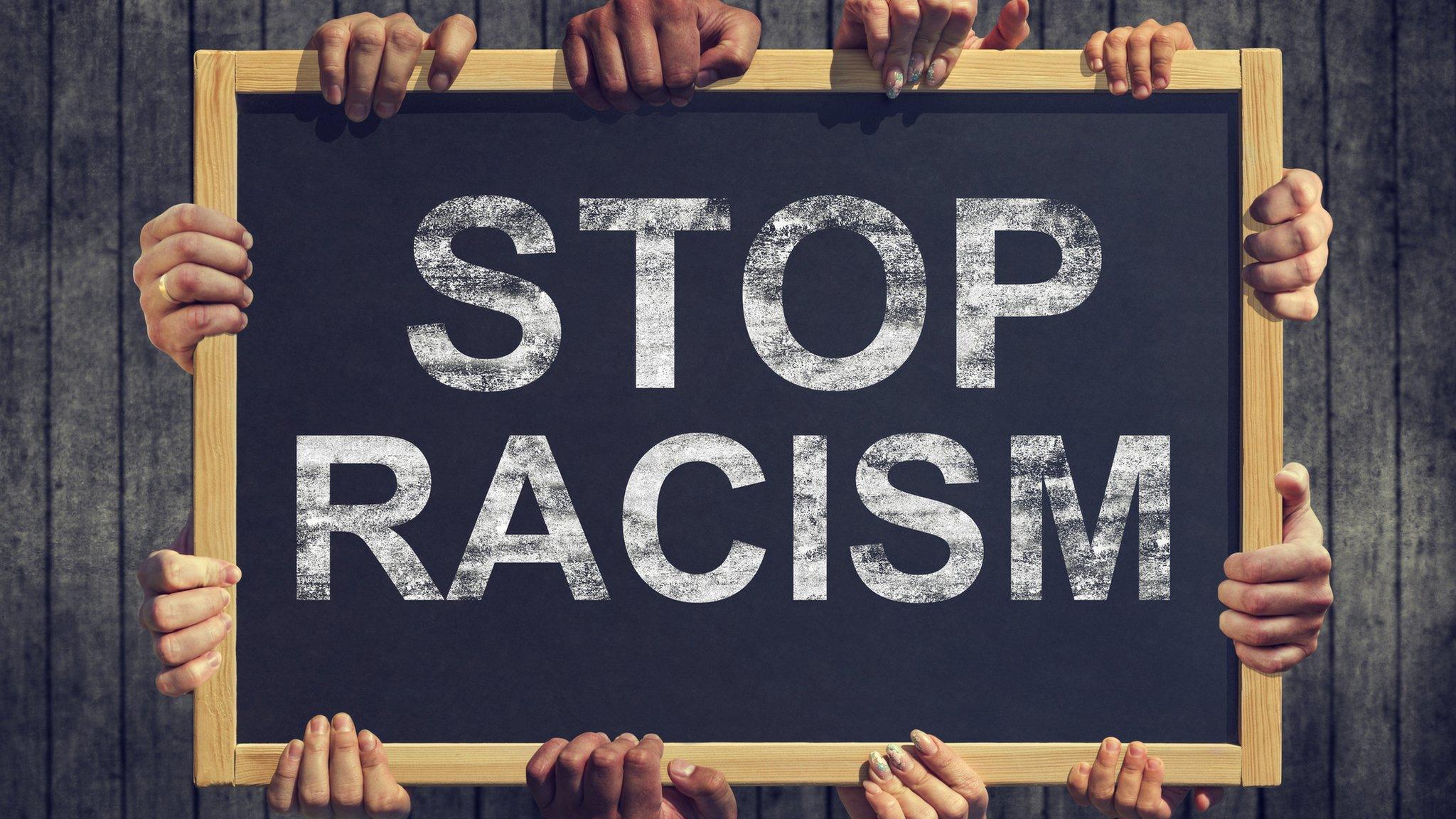
- Published3 August 2020
